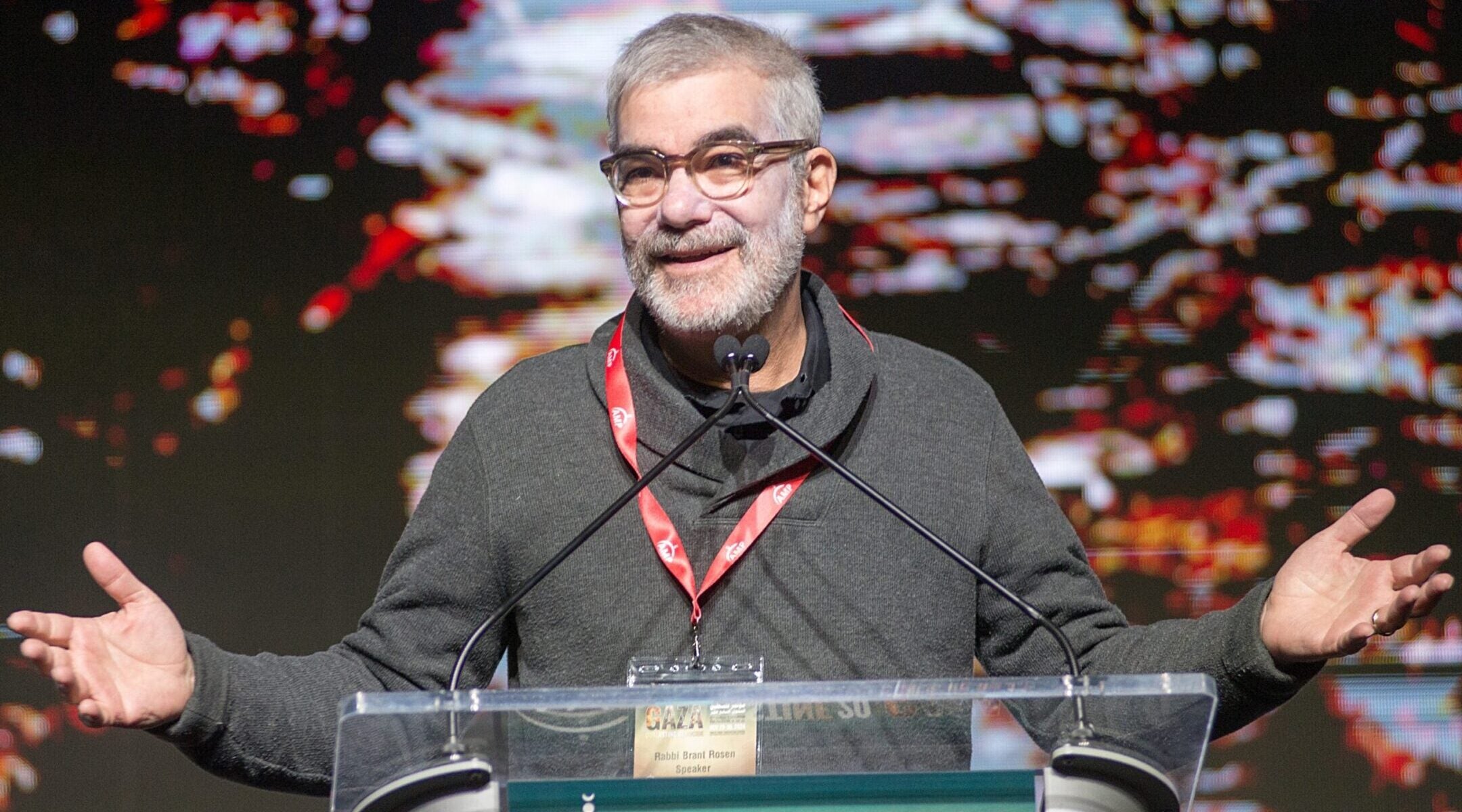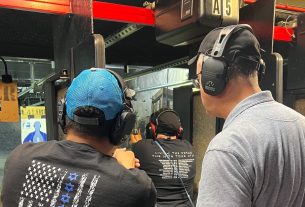The leader of an anti-ZIonist synagogue in Chicago decried the murders of two Israeli embassy employees as “heinous,” but said he felt it was too soon to tell if the attack was antisemitic.
“It’s devastating,” Rabbi Brant Rosen, who leads the Tzedek Chicago congregation, said in an interview. “I mean, I think I would say that our members of our congregation — I think I can safely say, uniformly — think that this was a heinous and unjustified act.”
He added, “We also believe that this is harmful to Palestinians as well. It does not help their cause, and this is not what solidarity looks like.”
Rosen’s comments are significant because he leads an anti-Zionist synagogue in Chicago, where the alleged shooter lived. The vast majority of major American Jewish organizations support Israel or express an affinity with it, and those groups have condemned the Washington, D.C., attack, which occurred outside a Jewish museum, as antisemitic.
Some, though not all, non- and anti-Zionist groups have also condemned the murders. None has characterized them as an antisemitic attack, and Rosen did not either.
“These were two Israeli embassy workers, so they were representatives of a country that is engaged in a genocide,” said Rosen. “I don’t know if the shooter knew that they were embassy workers and they were leaving the museum and targeted them specifically, or if he thought that they were just random Jewish people, so I don’t know enough about these things to comment.”
He added, “I think it’s fair to say this was an act of political violence from what we do know, and that whether or not it’s antisemitic, I don’t think we can say.”
He echoed the same ideas in an email to his congregants Friday morning, writing that it would be “irresponsible” of him to speculate whether the shooter’s motivations were antisemitic.
“We do know that it was an act of political violence and that the victims were embassy representatives of a nation that itself is engaged in an act of political violence that has killed tens of thousands of Palestinians and is currently taking the lives of hundreds of people in Gaza every day,” he wrote in the email.
Before founding Tzedek Chicago a decade ago, Rosen served as rabbi of Chicagoland’s Jewish Reconstructionist Congregation. He left that synagogue due to differences over Israel following the 2014 Gaza war. He is the co-founder of the rabbinic cabinet of Jewish Voice for Peace, an anti-Zionist group with which his synagogue is loosely affiliated.
JVP condemned the attack shortly after it occurred, tweeting, “We condemn last night’s fatal shooting of two staff of the Israeli embassy in Washington D.C. We are grounded first and foremost in the belief that all human life is precious, which is precisely why we are struggling for a world in which all people can live in safety and dignity.”
An X account linked to Rodriguez reposted an image of a JVP protest in November 2023, but the group said it had no knowledge of his involvement. Rosen said he also didn’t know of Rodriguez prior to the shooting.
“Tens of thousands of people regularly re-tweet our content,” the group said in response to an inquiry. “To the best of our knowledge, the shooter is not affiliated with our organization or any group that we work with. And to be clear, his actions don’t represent the values of the movement for Palestinian freedom.”
IfNotNow, a group that frequently partners with JVP in pro-Palestinian protests, also condemned the murders as a “terrible act of violence.”
But another group, the International Jewish Anti-Zionist Network, took a different view of the shooting — writing in its statement Friday that it is “unsurprising that unchecked genocidal violence and ethnic cleansing of Palestinians has consequences for those enacting it.”
The statement went on to enumerate instances of Israeli violence against civilians.
“The attack on two Israeli embassy staff members was not a targeted attack against Jews, nor was it motivated by anti-Jewish hate,” the group added. “How do we expect this type of violence to stop? We must stop the genocide and prevent Israel from ethnically cleansing and annexing Gaza. This attack is precedented and the precedent was set by Israel.”
In the time since the attack, a range of pro-Israel activists have linked it to pro-Palestinian protests and chants such as “Globalize the intifada,” a reference to two Palestinian uprisings against Israel, the latter of which included a string of suicide bombings.
Rosen does not believe his movement is antisemitic, though he said a small number of activists were. He said he worried that the shooting would fuel a backlash to pro-Palestinian activism.
“We know that there are politicians and opponents of our movement that are seeking to stigmatize Palestinians and those who stand in solidarity with Palestinians as incorrigibly violent and so an immoral, irresponsible act like this just gives them more ammunition for that baseless claim,” he said.
“I don’t believe that the Palestine solidarity movement is antisemitic,” he added. “Are there fringe members of this movement who are? Yes, but I’ve been involved in this movement long enough to be able to say very confidently that it is a movement that is anti-racist at its core, and that includes antisemitism.”
Much of his statement to his congregation, and his comments in the interview, focused on Palestinian suffering in Gaza.
He contrasted “cascading news reports” about the two victims, Yaron Lischinsky and Sarah Milgrim, with reporting on the death toll in Gaza — a difference he said his congregants had also noticed.
“I couldn’t help but think tens of thousands of Gazans have been killed … and I couldn’t help but think, where are those stories about them? Where are the stories about their lives and their hopes and their dreams? It would fill newspapers ad infinitum,” said Rosen.
He added, “I think in our world, there are certain kinds of people who are considered more grievable than others, and Palestinians, like all disenfranchised people, are habitually considered to be less grievable, because, quite frankly, they’re dehumanized.”
But he rejected the idea that the attack represented his values. On Thursday morning as federal agents descended on Rodriguez’s Chicago apartment building, a poster seen in a window included the phrase “Tikkun Olam means FREE PALESTINE.” A neighbor subsequently said the window was his, not Rodriguez’s.
Tikkun olam is a Hebrew phrase meaning “repair the world” that has come to reflect a shorthand for social justice.
“I can’t comment on the poster or the shooter, or what may have motivated him,” Rosen said. “I don’t know who he is, I’m not familiar with him, but I can say that what he did is the absolute opposite of tikkun olam.”



